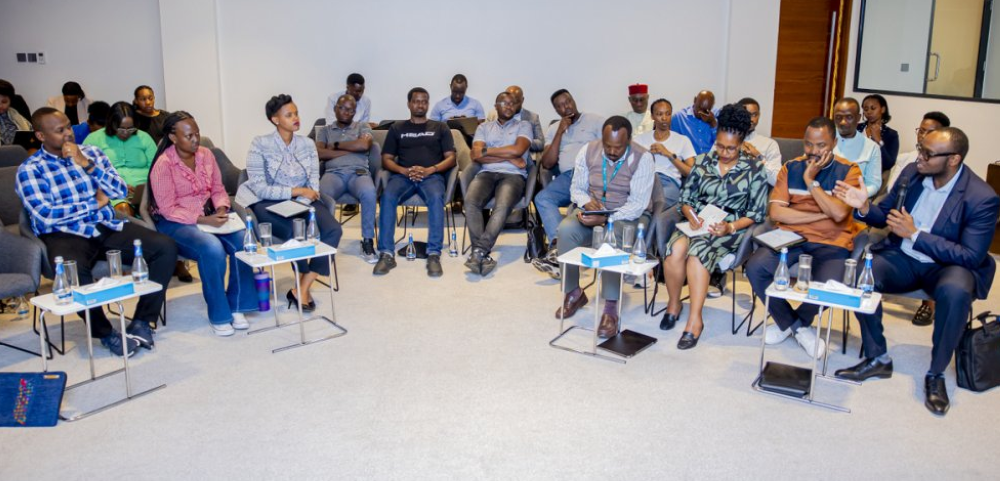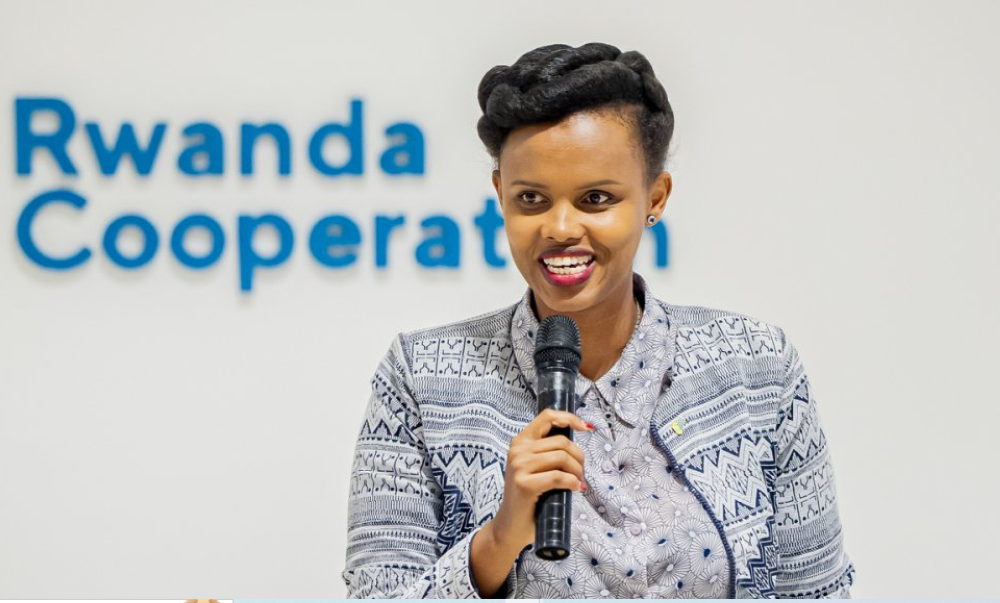

Rwanda has exported public finance management and digital service delivery projects to Chad, Eswatini, and Guinea-Conakry according to Rwanda Cooperation Initiative (RCI).
ALSO READ: PHOTOS: Rwanda, Guinea sign 12 cooperation agreements
Established in 2018 and operating under the Ministry of Foreign Affairs and International Cooperation, RCI is dedicated to sharing Rwanda’s experience and expertise with partner countries in the Global South and beyond. Since 2019, the agency has been engaged in various collaborative projects with different countries, signing contracts for the implementation of diverse projects aimed at modernizing public services and enhancing the technological capabilities of partner countries.
These projects include the Integrated Financial Management Information System (IFMIS) in Chad, the eTax Management System, and the Electronic Billing Machine (EBM) system in Chad, the E-Procurement system, in Guinea, and IFMIS in Eswatini.
ALSO READ: E-procurement system cuts malpractices in public tenders
Reflecting on its achievements, it hosted a participatory review workshop on January 10 with the Rwanda team driving the digital projects across Africa.
This gathering provided an opportunity to celebrate milestones from 2024, address challenges, and outline strategies for 2025 in alignment with RCI’s broader vision.
Guided by its vision to become a global gateway for development knowledge-sharing, RCI leveraged local expertise to implement five digital projects in three African countries since 2019.
By leveraging Rwanda’s home-grown solutions, RCI has partnered with these nations to implement impactful solutions that promote efficiency, transparency, and innovation.
Patricie Uwase, the Chief Executive Officer of RCI, said that since its inception, the agency has hosted 7,966 delegates and 696 delegations from 62 countries, mostly from Africa, and signed several Memoranda of Understanding to operationalize South-South and Triangular Cooperation.


South-South Cooperation (SSC) refers to a form of collaboration between developing countries, where they share knowledge, resources, and expertise to address common challenges and promote development. This cooperation is based on solidarity and mutual benefit and can take forms such as trade, technical assistance, capacity building, and joint ventures.
The goal is to reduce dependency on traditional aid and promote self-sufficiency, development, and economic growth through collaboration between countries with similar development experiences and challenges.
Triangular Cooperation is a partnership model involving three parties: typically, two developing countries and a donor country or international organization.
In this model, the donor country or organization provides financial resources, technical expertise, or logistical support, while the developing countries engage in direct cooperation and exchange of knowledge, practices, and technologies.
"We have cooperation with African countries to exchange the solutions we have. Some of the solutions are the systems we built in different institutions. We exported the finance management project to Chad. Rwanda also exported three projects to Chad under this cooperation, and we are working on the fourth project," she said.
ALSO READ: RRA launches nationwide campaign to promote EBM usage
She added that RCI’s work exemplifies the spirit of South-South Cooperation, where mutual respect, cultural awareness, and shared goals drive transformative outcomes.
"Our partnerships reflect a deep commitment to the shared aspiration for a prosperous continent."
She addressed a diverse audience comprising digital engineers, public finance experts, business, and policy analysts, and RCI staff.
Workshop participants highlighted the importance of continuous knowledge-sharing to replicate proven solutions, adapt lessons learned, and enhance project coordination at both organizational and country-specific levels. The discussions reaffirmed RCI’s dedication to continuous improvement and the pursuit of excellence in knowledge-sharing initiatives.
"As Rwanda Cooperation advances into 2025, its unwavering focus remains on unlocking the potential of shared knowledge and fostering partnerships built on respect, innovation, and collaboration. Together, RCI and its partners are forging a future where development solutions are adapted and owned by those who implement them, paving the way for a high quality of life for all, thus ensuring resilience and sustainability for generations to come," she said.
Core projects in public finance management, digital service delivery, and governance have enabled partner countries such as Chad, Eswatini, and Guinea-Conakry to adapt proven practices to their unique contexts, ensuring lasting and meaningful outcomes.
RCI’s strategic activities are grounded in a firm belief in the African Union’s principle of "African Problems, African Solutions.”
Jean de Dieu Rurangirwa, an entrepreneur, implemented the Integrated Financial Management Information System (IFMIS) from 2020 to 2023.
"It supports human resource management, payroll management, planning and budgeting management, treasury and payment management, accounting and reporting management," he said.
As part of the South-South cooperation partnership, Rwanda&039;s Ministry of Finance and Economic Planning signed a Memorandum of Understanding with its counterpart in Chad. In this regard, the government of Chad seeks to borrow Rwanda's best practices in public finance management, especially the automation of public finance management processes.
The two parties undertake to exchange technical resources and expertise in the field to support the other party in the development of the Integrated Financial Management Information System and its implementation.
The development and implementation of IFMIS is coordinated by Rwanda Cooperation Initiative, which is tasked with assisting Chad in the process.
Rurangirwa said that IFMIS was integrated with the e-tax and customs systems.
"It has been deployed in 63 ministries, 23 regions, and the treasury. We trained and supported 1,441 users," he explained.
eTax System
Rwanda also implemented an integrated tax management system in Chad. This includes taxpayer registration, electronic tax filing, electronic tax payments, tax control and audits, tax appeals management, taxpayers' web portal and online services, and tax reporting and analytics.
"We integrated e-tax with IFMIS, EBM, and customs systems. We also integrated it with eight banks and two telecoms. We trained and supported 1,201 users," he noted.
ALSO READ: Why new tax procedures law is a big deal
The Electronic Billing Machine (EBM) system was also piloted in Chad.
"It includes EBM registration, items management, sales management, refund management, as well as stock management. The EBM was integrated with the e-tax system and has been piloted in 61 companies. We are starting the full rollout to taxpayers," he said.
Michaud Tegera, a project director implementing e-procurement in Guinea-Conakry, said that the system was designed to modernize and digitize public procurement processes. "The project is part of the desire to promote transparency, efficiency, and fairness in Guinean public procurement while strengthening local capacities through close cooperation between Rwanda and Guinea," he noted.
Rooted in the principles of Rwanda’s Vision 2050, the African Union’s Agenda 2063, and the second National Strategy for Transformation (NST2), RCI has welcomed nearly 700 delegations from 62 countries, fostering exchanges through study visits, training programmes, and advisory services.


